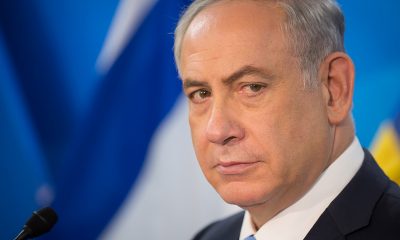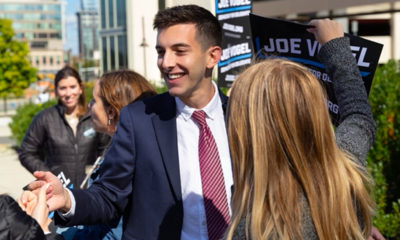Middle East
Israel election results could prove disastrous for LGBTQ community
Former Prime Minister Benjamin Netanyahu poised to return to office
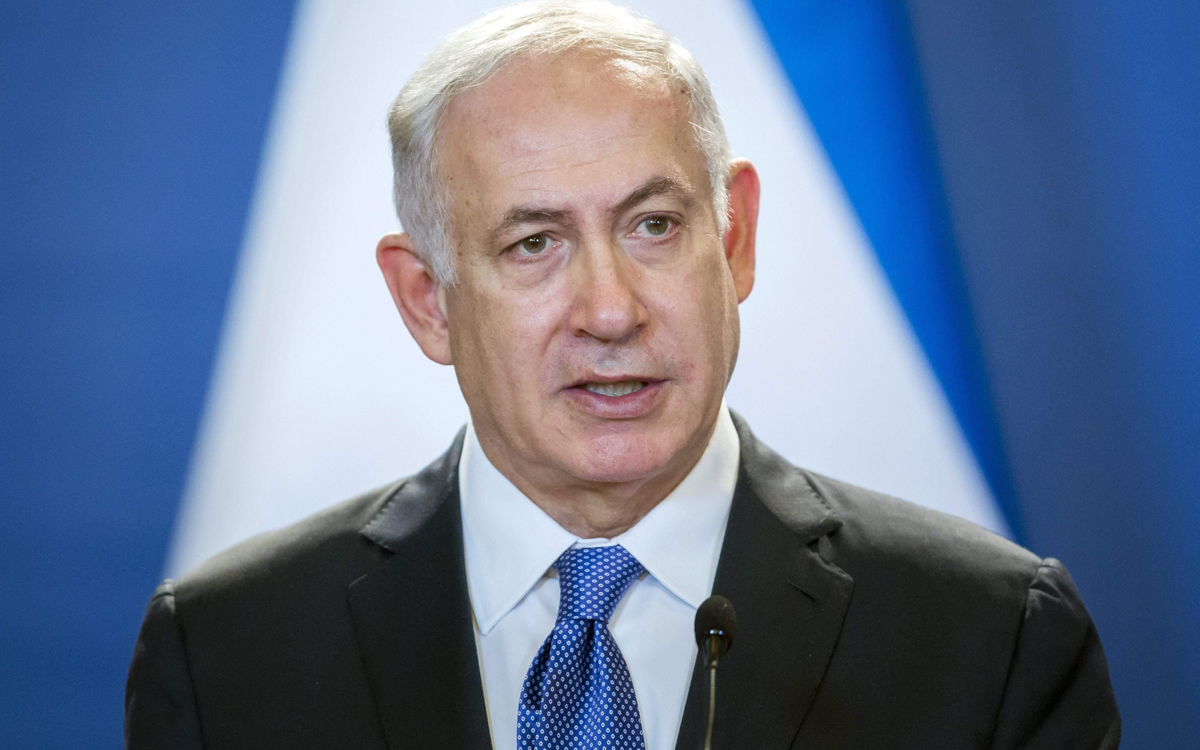
WDG, the Washington Blade’s media partner in Israel, wrote this article.
Around five million Israelis voted in the elections that took place on Tuesday.
After five election campaigns in three and a half years, as of now it seems that the tie between the two (political) blocs has been broken. Benjamin Netanyahu will once again be prime minister and he will be the one to form the next government.
The results that are slowly coming in are extremely worrying for many Israelis, including members of the LGBTQ community.
The far right Hatzionut Hadatit (Religious Zionist Party), which includes Bezalel Smotrich, the organizer of the infamous Cattle Parade, a parade of cattle that marched at the same time as the Jerusalem Pride Parade, did well. Itamar Ben Gvir, who regularly protests against Pride parades and supports so-called conversion therapy, and Avi Maoz, whose anti-LGBTQ agenda is based on preserving family values, are also members of the party.
The Otzma Yehudit party and Hatzionut Hadatit include new, unfamiliar figures who may turn out to be much more extreme than Smotrich and Ben Gvir in regards to their attitudes towards LGBTQ people, women and other minorities.
Does the LGBTQ community have to worry about the election results?
Even before the formation of the government, it is already clear that LGBTQ representation in the Knesset will decrease. After a Knesset with five openly LGBTQ representatives, the next Knesset will have only three LGBTQ members and they will all be men: Amir Ohana from the Likud party and Yorai Lahav and Idan Roll from Yesh Atid.
Another concern for the LGBTQ community is the fear that Meretz, the first party that supported LGBTQ rights and has historically been the political home for the members of the LGBTQ community, will not earn enough seats to get its representatives into the Knesset, which would give the Netanyahu bloc a crushing victory.
The achievements achieved by the LGBTQ community in the previous Knesset may also be in danger.
The LGBTQ community over the past year has managed to achieve a number of significant achievements that include the repeal of the ban on gay men from donating blood, the approval of surrogacy for male couples, reforms of the Committee for Gender Reassignment, the promotion of activities for LGBTQ Arabs and a budget of 90 million NIS ($24,460,991) for local authorities all over the country to carrying out activities for the benefit of the LGBTQ community.
Due to the complexity of the previous government that was made up of different parties from all ends of the political spectrum — from Naftali Bennett on the right to Meretz and Ra’am on the left — all of these achievements did not come through legislation, but through regulations that various ministers implemented. This fact may be to the community’s detriment, because new government ministers could just as easily reverse them.
The far-right’s goal of reforming the justice system could also hurt LGBTQ achievements, some of which resulted from Supreme Court decisions. The legislation of the Override Clause will give the Knesset the authority to re-enact a law that the High Court has invalidated, thereby overruling Supreme Court decisions.
Poll indicates most LGBTQ Israelis fear right-wing government
In a study the Israeli Institute for Gender and LGBTQ Research at the Aguda conducted before the election, 87 percent of LGBTQ Israelis said that they fear the next Knesset will violate their rights. This fear is not only from the lack of promotion of pro-LGBTQ legislation, but also from the promotion of regulations and laws that will actively harm LGBTQ organizations.
If the right-wing government fulfills its promises, it would remove the LGBTQ education organization Hoshen from schools, end financial support for Israel Gay Youth, ban hormone treatments for transgender people and provide financial support for organizations that offer conversion therapy. And as we have learned during all the years of the LGBTQ struggle, when public figures incite against members of the community, this affects the public and the verbal cancellation turns into discrimination of LGBTQ people in businesses, bullying in schools against LGBTQ students and physical assaults in the street.
How LGBTQphobic will the next government be?
The results of the elections in Israel are the will of the Israeli voter. The people of Israel gave a significant power to parties that seek to harm the rights of the LGBTQ community, but these parties were not necessarily elected due to being anti-LGBTQ.
The fact that Ben Gvir and Smotrich and their parties received significant support is not necessarily about LGBTQ issues, but it is mainly based on the state of internal security in Israel. Violence and crime in large areas of the country that have become no man’s land, the internal terrorism that culminated in riots in Arab Jewish cities in May 2021, and the disappointment of many from the right-wing parties that entered the last government together with an Arab party caused many voters, some of them LGBTQ, to vote for extreme right-wing parties.
Another parameter that helped Ben Gvir and Smotrich in the election is the timing.
They entered an election system in which there is no other right-wing party except Likud. All the right-wing leaders (Avigdor Lieberman, Bennett and Gideon Sa’ar) moved towards the center-left and new, more extreme right-wing leaders who previously failed to enter the Knesset filled the vacuum.
The people of Israel are patiently waiting to see what the results will be and how the map of the blocks will look. We still won’t know which government will be formed, even after the final results are announced. Netanyahu will receive the mandate from the president and will begin the task of forming the government, which history has already taught us is impossible to predict how it will end. Israeli politics is unpredictable and full of surprises, and any possibility we didn’t think about can become a reality.
It is likely that in the first phase Netanyahu will choose to form a narrow right-wing government with his natural ultra-orthodox and Religious Zionist partners. In this case, Netanyahu will depend on extremist Zionist elements, such as Smotrich and Ben Gvir, and even Maoz, each of whom has the power to topple the government.
The question is whether those parties will use their power to harm LGBTQ achievements and even enact anti-LGBTQ laws, and if so, how will the more liberal Likud members, LGBTQ members and their supporters, will react to these proposals, and whether both parties will be willing to endanger the right-wing government on this subject?
Later, difficulties at home, including excessive demands of the extreme parties, or international pressure from the outside, may cause Netanyahu to strive to expand the government, and perhaps even to replace the extreme elements with more moderate centrist elements such as Benny Gantz. Such a government would be less anti-LGBTQ, but even here the chance of promoting LGBTQ issues is almost non existent, and it is likely that there will be no progress with what will remain. No anti-LGBTQ laws will be promoted either.
Two points to consider
The first one is how the new Knesset members who proudly declared themselves to be LGBTQphobic will sit in a coalition and cooperated with Ohana, a gay MP and a father for two children who he had via surrogate.
The second one is how will Netanyahu and the secular Likud members deal with the extreme demands of the religious parties, which range from the closing of places of entertainment on Shabbat, the termination of women’s service in the IDF, and the application of Torah laws to the judicial system.
“Just as the outgoing government protected the rights of all citizens of the country, the incoming government is also expected to do the same.,” outgoing Health Minister Nitzan Horowitz, a member of the LGBTQ community who will not enter the next Knesset, said. “If Smotrich or Ben Gvir think they will harm women’s rights, LGBTQ or Arabs, a large and strong front will stand in front of them and will prevent this from them.”
Will the opposition to this new government will be strong and determine enough to stop these scenarios from happening?
Only time will tell.
Middle East
Israeli Supreme Court rules country must allow two mothers on child’s birth certificate
LGBTQ activists praised the ruling
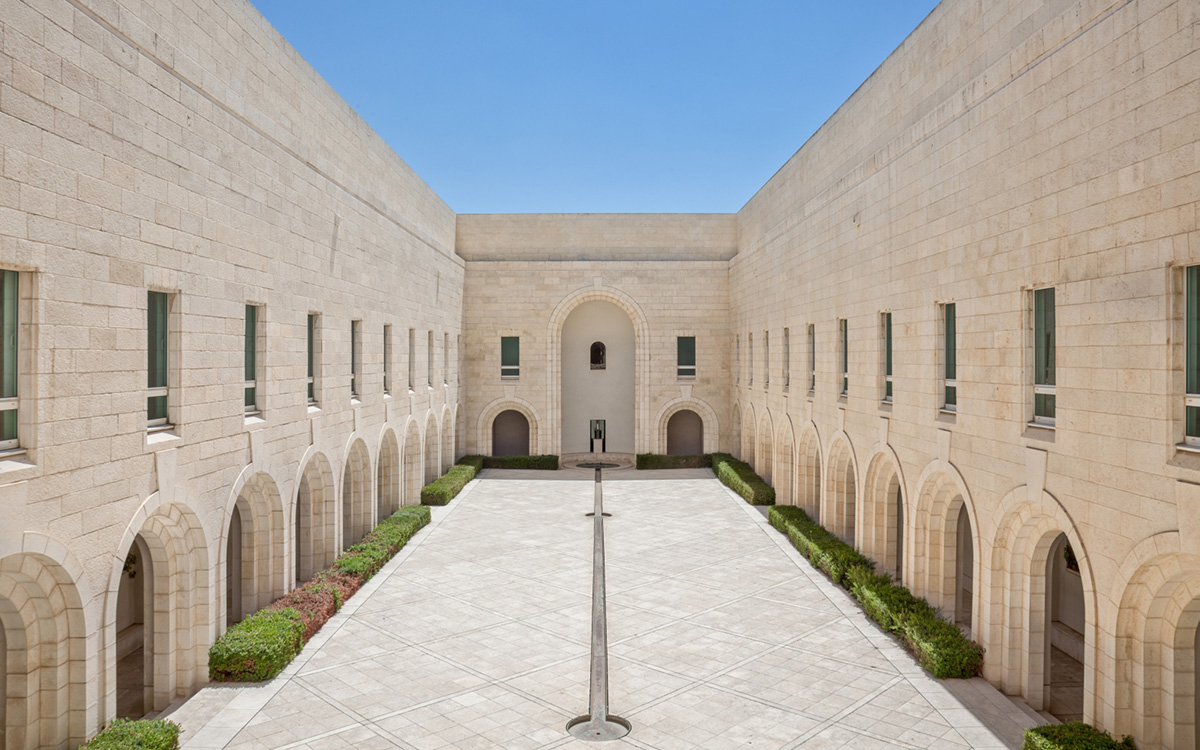
Supreme Court judges on Thursday unanimously ruled that the Population Authority must register female couples as mothers on the birth certificates of their children they have together.
The decision was made following a petition submitted by nine female couples, mothers of children born through anonymous sperm donation. The panel of judges, headed by Supreme Court President Uzi Fogelman and Judges Ruth Ronen and Alex Stein, rejected the Population Authority’s claim that the birth certificate reflects only biological parentage and ruled that both the birth mother and her partner must be registered as the child’s parent.
“The exclusion of the non-biological parent from the birth certificate means a preference for the position of the biological parent over parenting based on other parents,” Fogelman wrote in the ruling. “In terms of substantive law, the parenting of both parents — the biological parent and the non-biological parent — is equal and it includes the same basket of parental rights and duties. I do not believe that when at the level of substantive law there is equality between the parents, there is room to distinguish between them at the level of registration in the birth certificate.”
Fogelman also referred to the interpretation that may be given to the lack of registration on the birth certificate as “an offensive message according to which we are dealing with relationships that are different in nature and essence: while biological parentage is ‘real’ parentage, non-biological parentage is inferior and suspect parentage, a kind of ‘conditional’ parentage.”
The ruling does not apply to male couples because the petition dealt with couples who conceived with the help of anonymous sperm donation.
The ruling was issued as part of a petition submitted around eight years ago by nine female couples, who claimed that not registering the non-biological mother on the birth certificate deprives the child of rights that include acquiring foreign citizenship and petitioned the Interior Ministry and the Population and Immigration Authority to issue their children amended birth certificates that include the names of both mothers.
The Population Authority refused the couples’ request on the grounds that the birth certificate is a document that reflects the biological parentage at the time of birth, and is not updated with the passage of time. The petitioners claimed that the Population Authority’s policy violates the right to family life and the right to equality, since it discriminates against same-sex couples. And as evidence, they pointed out that when it comes to heterosexual couples, the Interior Ministry issues them corrected birth certificates — even in cases of adoption by the spouse of the biological mother or in the case where sperm donation is used for the birth of the child.
Fogelman accepted the respondents’ position according to which the birth certificate was intended to document the identity of the child at the initial point in time of his life. Alongside this, he rejected the respondents’ position that the birth certificate was intended to reflect biological parentage.
“A birth certificate is one of the most important documents a person has. It confers a basket of rights and is also used for the purpose of regulating citizenship in foreign countries,” said attorneys Daniela Ya’akobi, Hagai Kalai and Achinoam Orbach, who represented the petitioners. “For all these years, the state has insisted on denying children of two mothers a birth certificate that reflects the reality of their lives. The judgment of the High Court of Justice put an end to ugly and unnecessary discrimination, which has no purpose and never had. It is a great victory, but no man needs or wants to win his country. The time has come for the state, on its own initiative, to allow full equality of rights for all its citizens, including LGBT people.”
Aguda Chair Hila Peer responded to the ruling.
“This is a historic day when our families are equal,” she said. “For years the Interior Ministry has refused to register proud mothers on the birth certificate and now, thanks to the High Court of Justice, we are taking a significant step towards equality.”
Middle East
Sheila Weinberg becomes Israel’s first transgender council member
Former teacher elected in Kiryat Tivon on Feb. 27
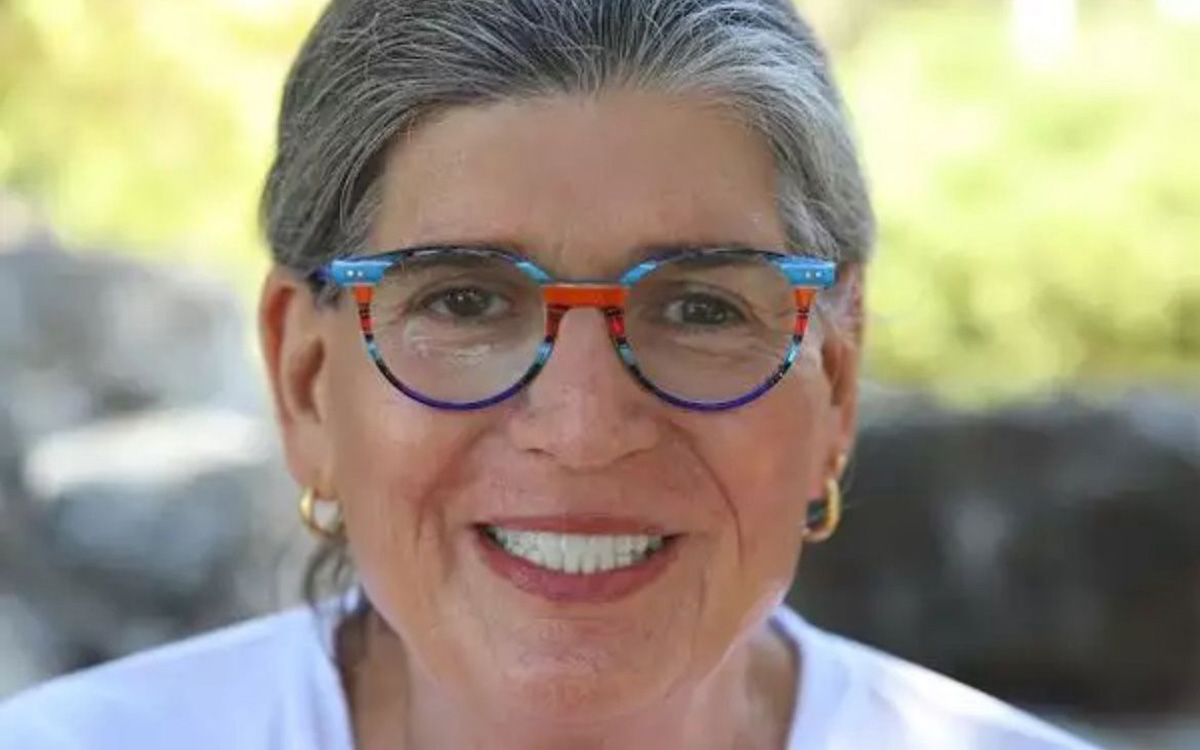
WDG is the Washington Blade’s media partner in Israel. WDG published this article on their website.
Sheila Weinberg on Feb. 27 wrote another chapter in LGBTQ history in Israel when she was elected as the country’s first transgender council member.
Weinberg, the 65-year-old chair of the “Transiot Israel” association and a former teacher, was elected to the Kiryat Tivon Local Council after her “More to Tivon” list won 37.7 percent of the votes.
In the past she was a member of the LGBTQ Committee in Kiryat Tivon and in the last year she was active in the protest against the proposed judicial reforms. Weinberg has two children and a granddaughter. She started the process of affirming her gender about five years ago when she was 60 years old.
“Many people in Kiryat Tivon knew exactly who I was and about my past. It didn’t bother. It seems to me that in certain places it was helpful,” Weinberg told WDG. “The residents of Tivon decided clearly in favor of a liberal, pluralistic and democratic Tivon. I have been a member of Meretz for many years and in these elections we joined a single list with ‘Yesh Atid’ and ‘Our Tivon’ and ‘Hoze Hadash’ (‘New Contract’), a list whose prominent values are equality among all. On the list were the women who founded the LGBT Committee in Tivon that operates with full vigor.”
Despite the historic title as the first trans council member in Israel, Weinberg is not content with just being active in the issues of the LGBTQ community, and aims (to become involved with) the education portfolio in her locality.
“I intend to use this branding to operate in Tivon in two main areas: Education and the LGBT community. Naturally, I see myself as someone who has a well-founded view of education in Tivon and I would be happy to be incharge of the education in Tivon, alongside the LGBT community. I have been teaching all my life. I taught for 35 years in several places, including the University of Haifa, and since the war started I have also been replacing a teacher who went into the reserves voluntarily.
Furthermore, I think I got my foot in the door for trans girls and trans boys. I will of course also continue to act as the chairman of ‘Transiot Israel’ and at the same time promote the needs of our community, which in the Haifa and Tivon area suffers from a lack of people.
I think I can speak for girls whose life path was less paved than mine. For those girls and boys who were thrown out on the street, out of school, who suffer physical and verbal violence, who are discriminated against economically and socially. And most of all, I would love to hear from my friends in the community and my friends there what the priorities are, not necessarily in Tivon but in Tel Aviv and other places.”
Other candidates from the LGBTQ community won in other municipalities in Israel.
In Tel Aviv-Yafo, Chen Arieli and Moti Reif entered the council for another term, as well as Reut Nagar and Shahar Levy. Assaf Weiss will serve as a council member in Ramat Gan, lawyer Daniela Jacobi in the Ramat Hasharon Council and Ella Kaufman will serve another term on the Kadima Council.
Middle East
Houthi court sentences 13 people to death for homosexuality in Yemen
Iran-backed rebel group controls large swaths of country
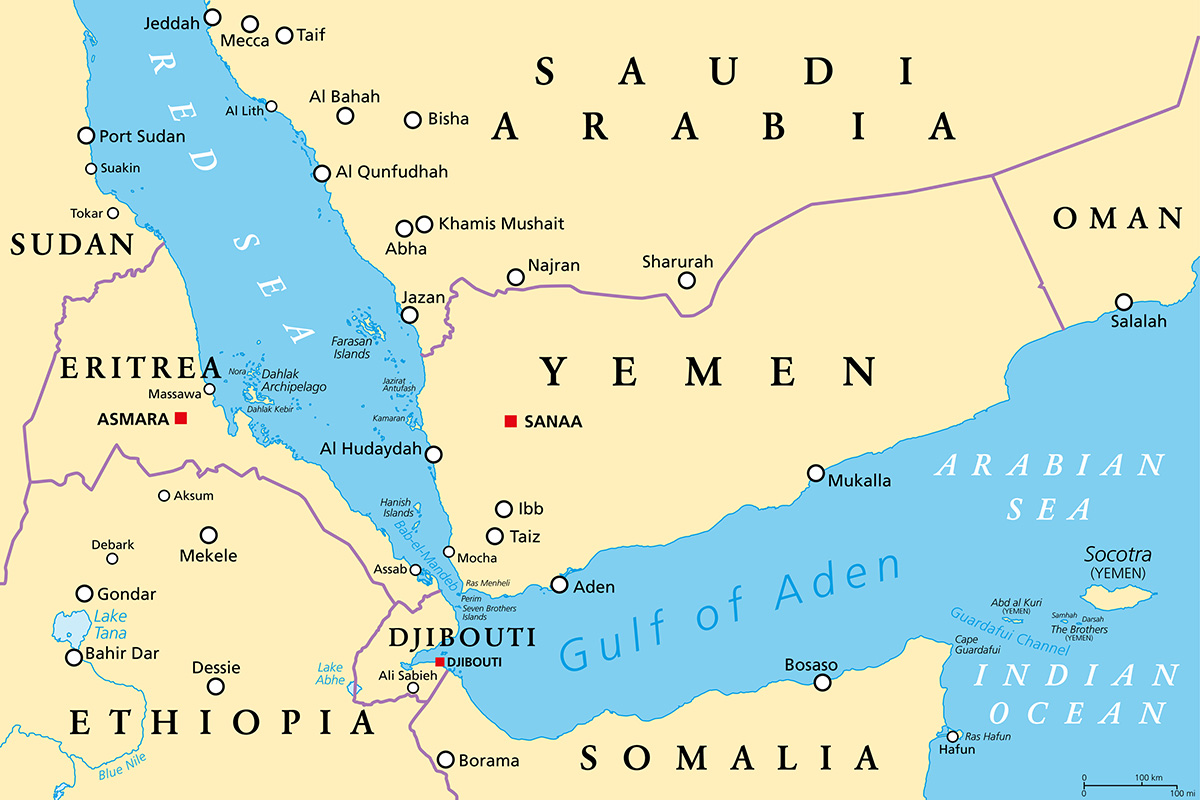
Reports indicate a court in Yemen has sentenced to death 13 people who had been charged with homosexuality.
Agence France-Presse reported the court in Ibb Governorate, which Iran-backed Houthi rebels control, announced the sentences on Feb. 4. The province’s main city is roughly 125 miles south of Sanaa, the rebel-held Yemeni capital.
The State Department’s 2022 human rights report notes Yemeni law criminalizes consensual same-sex sexual relations, “with the death penalty as a sanction under the country’s interpretation of Islamic law.” The report also indicates there were “no known executions of LGBTQI+ persons in recent years.”
The Houthis have been attacking commercial ships in the Red Sea since Hamas on Oct. 7, 2023, launched a surprise attack against southern Israel from the Gaza Strip. The U.S. and the U.K. last month launched air strikes against the Iran-backed rebel group.

